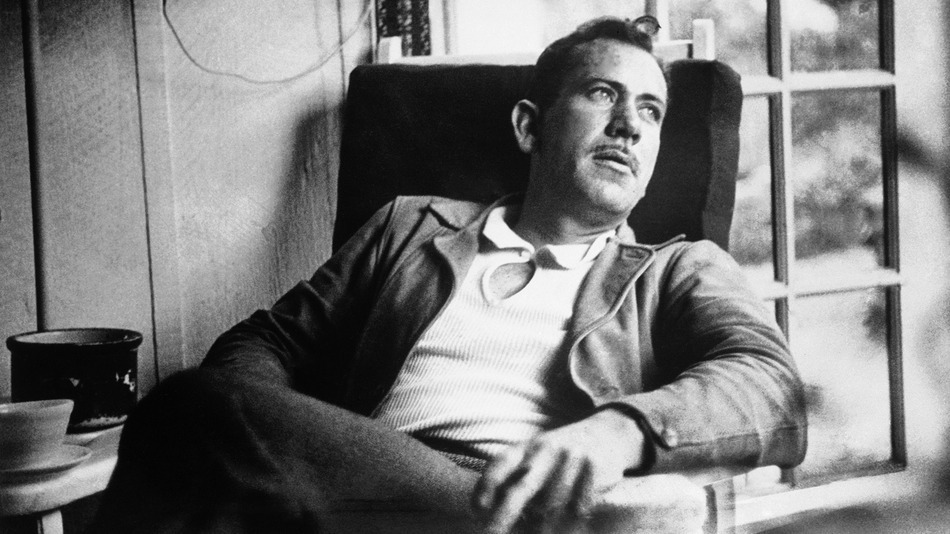|
Several years (ten or more) ago, I tried to read John Steinbeck. At that time I struggled through The Grapes of Wrath, which is known as his best work. I couldn’t quite digest it. But sometimes, certain books captivate us when we are of a certain age. You have to come to the book at the right moment in your life. I think that happened only now. Steinbeck’s writing is spellbinding, a slow and exquisitely detailed unfolding of life and people in California in the 1920s and later. Steinbeck has been rightly called a ‘giant of American literature’.He writes about the simple everyday lives of people, but it is incredibly realistic, stirring, and thought provoking. His work is a fabulous time machine, a journey back to a very different America, when farms filled Palo Alto, and many struggled against crippling poverty. Some of his descriptions, especially of the hardy farmers and their families, resonate with the sorry state of farmers in India today. Like all great writing, the themes are universal. His characters lived in a different time and place, but they are so real, you feel you know them personally. Closer home, Rohinton Mistry is the writer who reminds one of Steinbeck. The Grapes of Wrath
Touching. Compelling. Philosophical. The book describes the journey of a family of poor farmers — from Oklahoma to California — in search of better land and a way out of poverty. They travel on Route 66, stopping in makeshift camps. They have to struggle for food, water, and gas, all the while running out of precious money. But more hard-hitting is the hope that keeps them going, and at moments it seems to be all that holds them together and keeps them from going insane or turning criminal. There are incredible descriptions of the land and the people who inhabit it. Steinbeck makes you feel the dust in your shoes and the burn in your belly as you walk alongside the Joads. The concluding scene of the book is powerful and unforgettable. The Moon is Down Suspenseful. Dark. Intriguing. This story is set in a small town in Europe during World War II. Although the countries haven’t been named, it is obviously German-occupied territory. When an enemy solider orders a townsman to work in a mine, he retaliates and kills the soldier unintentionally. The soldiers then execute him by a firing squad. This incident turns the townspeople against the soldiers. Though they are largely unarmed, they start plotting revenge. The atmosphere of secrecy and animosity takes a toll on the soldiers' spirits. The town's Mayor is faced with a hard decision, an existential crisis. The book reveals the great truth that there are no truly peaceful people. Under threat, everyone changes, often for the worse. Finally, the book is a great proponent for peace, as it reveals the utter futility of war. East of Eden Rich. Emotional. Biblical. This is truly an epic, following the lives of two families in the Salinas Valley. Their interwoven lives and intricate back-stories make this a captivating tapestry. Most interesting is the female character Cathy, a dark and twisted soul who will stop at nothing to get what she wants. It is not often that one encounters a powerful female villain in literature, and this is one hell of a gal. This is a journey through several people’s lifetimes, both physically and emotionally. Although the ending doesn’t have the same impact as the end of The Grapes of Wrath, it is still a very soul-satisfying read. Cannery Row Humorous. Simplistic. A story set in Monterey — a town in California — and the characters that live on one of its streets. A group of poor friends wants to do something nice for Doc, a person who is always kind to them. They have good intentions, but in their enthusiasm they mess up their plan and have the reverse effect. They cause Doc considerable trouble. A humorous read, definitely lighter than his other works. But at times it becomes a little monotonous. Personally, this is the only book of Steinbeck that I did not absolutely love. Of Mice and Men Poignant. Sorrowful. Two migrant workers are strongly bonded together, and share the dream of owning their own land someday. They work on a ranch. One of the workers has a limited mental capacity but unlimited strength. One day, he kills the ranch-owner’s wife, entirely my mistake and is petrified. He runs away but is followed by a lynch mob. It is upto the other worker to save him from a painful death. This is a heartwarming and heartbreaking tale of friendship, dreams, hope, and the unforgiving side of human nature.
0 Comments
|
Archives
June 2018
Categories
All
LinksThe New Yorker Old Blogs |

 RSS Feed
RSS Feed
